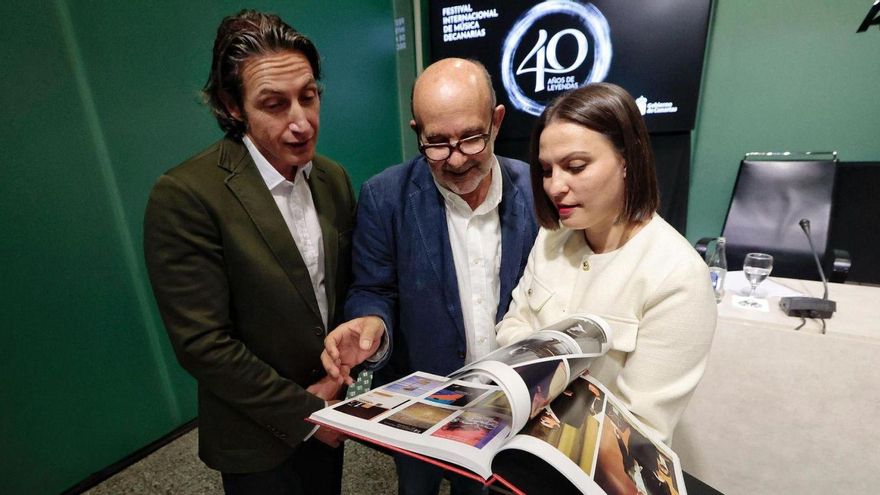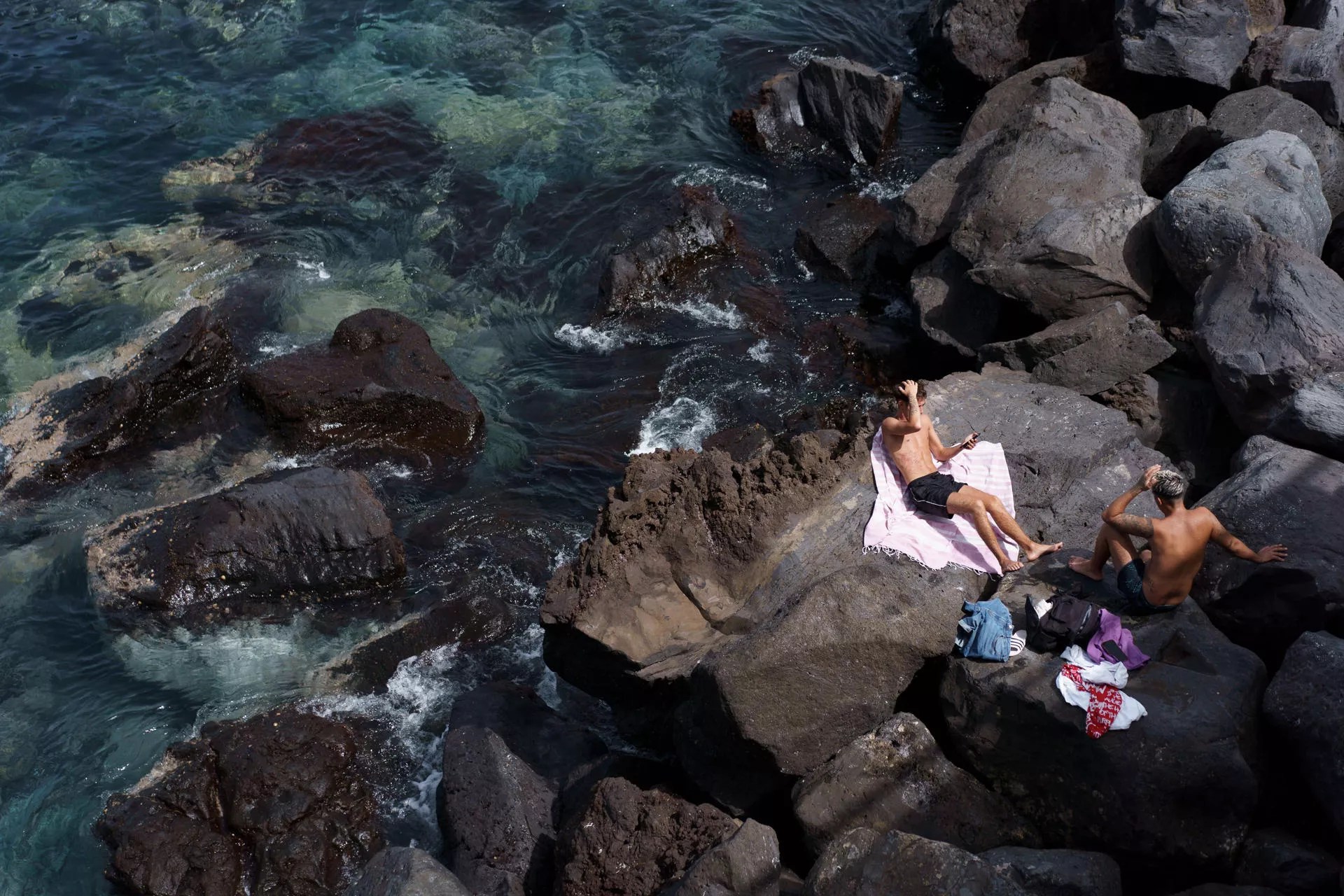
The 40th edition of the International Music Festival of Canary Islands starts with one of the most special concerts of this new programming and with a notable increase in the number of subscribers who will be able to enjoy its more than 60 concerts throughout the month of January and until February 9. Thus, the number of subscribers It has grown by more than 200 new members and exceeds the figure of 950.
The first date with music will take place today, at 8:00 p.m., in the Auditorium of Tenerifewith the veteran Bergen Philharmonic Orchestra under the direction of Pietari Inkinen, who will repeat tomorrow at same time at the Alfredo Kraus Auditorium of the capital of Gran Canaria.
During the presentation of this new edition, the Minister of Culture of the Government of the Canary Islands, Migdalia Machín, He stated that this is one of the main cultural events of the winter season in Europe, as well as one of the great events in the Canary Islands since it covers the entire Archipelago, despite its logistical difficulties. The director of the festival, Jorge Perdigón, spoke of the artistic level that this festival has had since its beginnings and highlighted the “peculiarity” of this event that is always held between the months of January and February and which is, in addition, one of the most complex held in Europe. that takes place in an entire autonomous community, and not just in one town. “But all of this is part of our hallmark and makes it possible for residents of any island to listen to the greats of music,” he said.
He also stated that “it has been a long time since the festival had a start with such important concerts” and announced that in just one week there will be fifteen events on the eight islands. Regarding the kick-off concert of this new edition of the festival, Jorge Perdigón recalled that it is the oldest active orchestra in the world, with 250 years of history. The bars of La Mañana, the popular movement from the legend Peer Gynt by Norwegian composer Edward Grieg, will be the first to be played in this new edition of the Canary Islands International Music Festival. Conducted by the Bergen Philharmonic Orchestra and under the direction of the Finnish Pietari Inkinen, the Norwegian group debuts at the festival accompanied by the child prodigy Alexandra Dovgan, who at only 16 years old has become one of the most recognized pianists in the world. present. “This is a worthy start to this notable festival and it is one of the most interesting concerts of this edition,” said Perdigón.
Beyond this inaugural concert, the festival director also spoke of other imminent events of this edition such as the two evenings on the capital islands with Evgeny Kissin, “one of the best pianists of recent decades.” Perdigón recalled that he is a musician “who takes great care of his performances, and does not offer more than 30 a year,” which is why it has been very difficult to include him in the program of the Canary Islands International Music Festival, a work of more than four years that is now crystallized with the performances of the pianist of Russian origin at the Tenerife Auditorium, on Friday, and at the Alfredo Kraus Auditorium in The Palms from Gran Canarias, next Tuesday. The festival director concluded this review of the first concerts with the tribute for the centenary of the death of Gabriel Fauré, in which the violinist Joshua Bell will participate. The appointments will be on Sunday at the Teatro Leal in La Laguna and a day later at the Gran Canaria Teatro Perez Galdos.
Jorge Perdigón also highlighted “one of the most anticipated concerts of the festival”, which is produced thanks to the participation of the musician and director Jordi Savall, who will direct the concert A sea of music, a proposal with works by Gaspar Fernandes, Diego Durón, Juan Gutiérrez Padilla, Felipe Olivelles and Santiago de Murcia that can be enjoyed on Friday at the Teatro Circo de Marte in Santa Cruz de The Palma day later at the Tenerife Auditorium and on Sunday at the Alfredo Kraus Auditorium in Gran Canaria.
This will be the first Canary Islands Music Festival without the presence of Jerónimo Saavedra, its founder, to whom an edition will be dedicated in which, until hours before his death, he was collaborating closely.
The Minister of Culture Migdalia Machín had words of affection for the “alma mater” of this festival and announced that the Government of the Canary Islands is working, in collaboration with the different parliamentary groups, to grant a distinction to the politician and man of Canarian culture. “without whose figure this festival would not be understood.” “Doing a tribute concert does not seem enough to me and in any case we will wait for the 2025 edition to remember it, although this year it will be present at all times,” said Jorge Perdigón.
A book reviews the history of the four decades of this contest
40 Festivals is the name of the publication that pays tribute to the four decades of history of the Canary Islands International Music Festival. It is a commemorative publication that recovers images of the best moments of this annual event and that recalls moments of the world’s great conductors, soloists and orchestras as they passed through stages in the Archipelago. Likewise, it highlights the long list of symphonic works that it has commissioned in these four decades, in an edition that also includes some anecdotes to remember. It is a book in which “every page sounds like music,” said the festival director, Jorge Perdigón. This publication will be available to event subscribers at the offices of the Canarian Institute of Cultural Development (ICDC) in Santa Cruz de Tenerife and Las Palmas de Gran Canaria.
40 Festivals dates back to the months before the creation of this festival in 1985, when Jerónimo Saavedra, being president of the Government of the Canary Islands, commissioned Rafael Nebot – who was later its director for 22 years – to create a first-class festival, being very specific in the characteristics that this event should have. In the book it is also clear that all the world-renowned orchestras have passed through it, as have conductors and soloists.
The publication dedicates a large section to recounting the important role that the festival has played in the creation of new international works. In this way, this competition has come to stand out on the international scene for its desire to contribute to the creation of new compositions and invest in the music of the future. In this way, in total there are more than fifty works created under its protection.
















